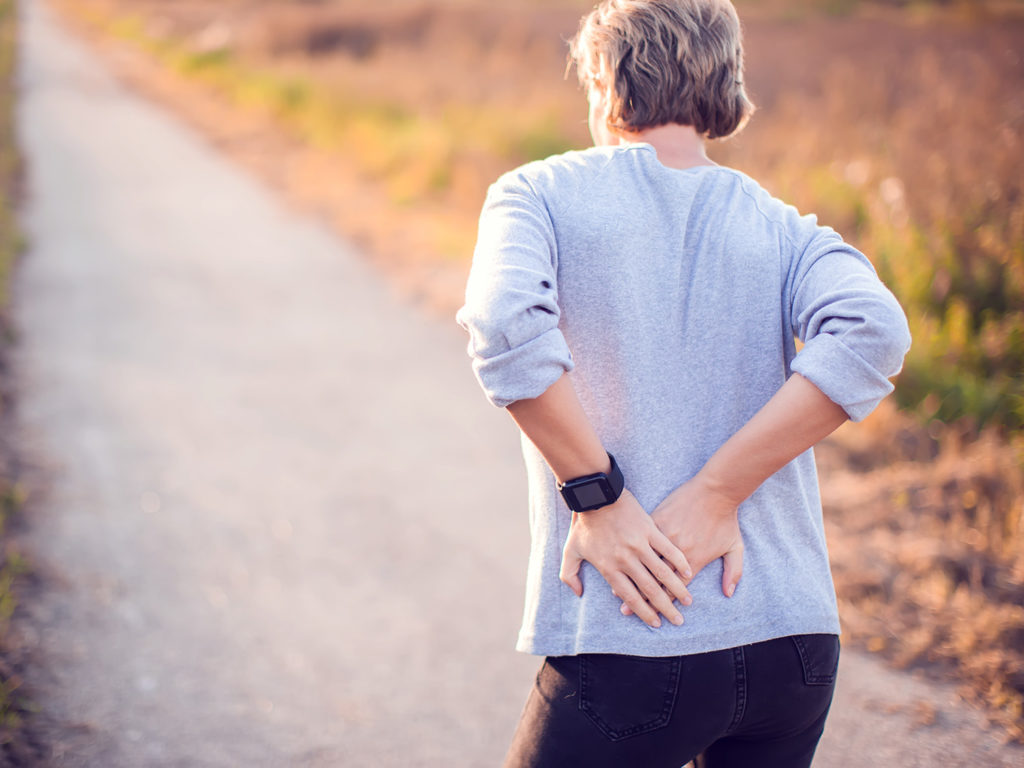Diverticulitis and Back Pain Symptoms

Diverticulitis and Back Pain Symptoms
Can Diverticulitis cause back pain?
Diverticulitis is a serious condition that could result in bothersome pelvic and lower back pain.
To fully grasp why diverticulitis can lead to pelvic and low back pain, one must first understand what diverticulitis is and how it differs from diverticulosis.
Diverticulosis occurs when the colon protrudes into “pouches” along weak spots in the colon wall, typically in the sigmoid colon, which runs left to right across the abdomen.
These pouches resemble balloons and are known as diverticula.1
Many individuals have diverticulosis without being aware of it. It is estimated that 50 percent of Americans over 60 and the majority of those over 80 have had diverticula.
Diverticulitis develops when the diverticula become infected or inflamed.
When full-blown diverticulosis develops, severe complications may occur.
Complications of diverticulitis
- Abscesses occur when pus accumulates in “pouches.”
- Perforations — tiny tears in the bowel walls that may eventually grow larger and allow bowel contents to leak into the abdominal cavity — are a common complication of colon cancer.
- Intestinal blockages caused by scarring prevent the passage of waste through the intestines; a complete blockage is a medical emergency requiring surgery. (This is significantly more severe than common constipation, which can also result in back pain.)
- An abnormal passageway between two organs. Typically, in diverticulitis, a fistula connects the colon to the bladder, small intestine, or vagina.
- Peritonitis, an infection and inflammation of the abdominal cavity caused by perforations in the bowel walls, is a medical emergency requiring surgery. Peritonitis causes severe abdominal pain that should not be ignored.
Symptoms of Diverticulitis
Diverticulosis frequently lacks symptoms. When diverticulitis develops, however, it can cause severe abdominal pain and tenderness, nausea, vomiting, a change in bowel habits, and cramping.
Diverticulitis Back Pain Symptoms
Back pain is another symptom of diverticulitis.
Since there are so many possible causes of lower back pain, it’s easy for a physician to overlook diverticulitis as a potential culprit.
Occasionally, the pain can spread to the scrotum, buttocks, hips, thighs, legs, shoulder, and even the neck. Clearly, this further complicates diagnosis.
Cases where diverticulitis causes back pain are more common among women and the elderly, or people whose immune systems are compromised.
When diverticulitis progresses to the point of back pain, the condition is typically more dangerous and difficult to treat.
Unfortunately, that sort of back pain can also arise from things like kidney stones or gallbladder problems, among many other things that aren’t related to the muscle strains and imbalances or orthopedic problems that usually cause back pain.
It can make it extremely difficult to diagnose and treat pain accurately.
Common treatment options of back pain caused by Diverticulitis
Your doctor will likely begin by ruling out the most obvious causes (such as strenuous exercise or an improper mattress) before moving on to less obvious causes.
Diverticulitis will likely manifest additional symptoms in addition to back pain (i.e., nausea, abdominal pain, vomiting, irritable bowel and others we discussed earlier).
And keep in mind that before diverticulitis develops, diverticulosis frequently goes unnoticed for years.
It is a rare case of diverticulitis (or diverticulosis) that causes only back pain and no other symptoms.
Consider requesting a referral to a gastroenterologist from your physician if your back pain is accompanied by other symptoms that indicate diverticulitis.
The gastroenterologist will likely perform a colonoscopy and additional tests to narrow down the causes and look for diverticulitis, diverticulosis, or other bowel conditions.
Other treatment options
Diet plays an essential role in managing diverticular disease. After an acute attack, it is generally advised to consume only clear liquids for a few days, then gradually introduce low-fiber foods. Also, try to keep a diverticulitis diet food journal in which you record your food consumption and symptoms in order to determine which foods trigger flare-ups.
FAQs on Diverticulitis and Back Pain
1. Can diverticulitis cause back pain?
Yes, diverticulitis can cause back pain, especially in the lower back. The inflammation in the intestines can sometimes radiate pain to the back, though it is more common to experience pain in the lower abdomen .
2. What are the common symptoms of diverticulitis?
Common symptoms of diverticulitis include abdominal pain (usually on the lower left side), bloating, fever, nausea, vomiting, and changes in bowel habits such as constipation or diarrhea. Some patients may also experience back pain or discomfort .
3. Why does diverticulitis cause back pain?
Back pain during diverticulitis may occur due to the inflammation and swelling in the colon. The proximity of the inflamed colon to the lower back can result in referred pain or discomfort in that region .
4. How can I differentiate between back pain caused by diverticulitis and other conditions?
Back pain related to diverticulitis is usually accompanied by other symptoms, such as abdominal pain, fever, and digestive issues. If the back pain is isolated without any gastrointestinal symptoms, it may be caused by other conditions such as muscle strain, kidney issues, or spinal problems .
5. How is diverticulitis-related back pain treated?
Treatment typically focuses on addressing the underlying diverticulitis, which may include antibiotics, a liquid diet, and pain management. Once the inflammation is reduced, the associated back pain should improve. For severe cases, hospitalization or surgery may be necessary .
6. Should I be concerned if I have both back pain and diverticulitis?
If you have both back pain and diverticulitis, it is important to consult your healthcare provider. While back pain can be a symptom of diverticulitis, persistent or worsening pain may indicate complications like an abscess or perforation in the colon, which requires immediate medical attention .
7. Can diverticulitis cause upper back pain?
It is less common for diverticulitis to cause upper back pain. The pain from diverticulitis is typically localized to the lower abdomen and lower back. If you are experiencing upper back pain, it may be due to another condition, and you should seek medical advice .
8. How long does back pain last during a diverticulitis flare-up?
Back pain associated with a diverticulitis flare-up can last as long as the inflammation persists, which may be a few days to a week or more. With appropriate treatment, the pain usually subsides as the diverticulitis resolves .
9. Can I use over-the-counter pain medications for back pain related to diverticulitis?
It’s important to consult your healthcare provider before using over-the-counter pain medications, as some, like NSAIDs (ibuprofen or aspirin), can worsen diverticulitis. Your doctor may recommend safer alternatives to manage the pain .
10. When should I seek medical help for back pain and diverticulitis?
Seek medical attention if your back pain is severe, persists despite treatment, or is accompanied by symptoms like high fever, severe abdominal pain, blood in stools, or signs of infection. These may indicate complications of diverticulitis that require immediate care .
References:
- Mayo Clinic Staff. “Diverticulitis.” Mayo Clinic, 2022.
- Cleveland Clinic. “Diverticulitis Symptoms & Causes.” Cleveland Clinic, 2022.
- WebMD. “Diverticulitis: Symptoms, Causes, and Treatment.” WebMD, 2023.
- Healthline Editorial Team. “Diverticulitis Overview.” Healthline, 2022.
- National Institute of Diabetes and Digestive and Kidney Diseases. “Diverticulosis and Diverticulitis.” NIDDK, 2023.
- Johns Hopkins Medicine. “Diverticular Disease.” Johns Hopkins Medicine, 2022.
- Harvard Health Publishing. “Diverticulitis: What You Need to Know.” Harvard Medical School, 2023.
- Cedars-Sinai. “Diverticulitis: Treatment and Recovery.” Cedars-Sinai, 2023.
- American Society of Colon and Rectal Surgeons. “Diverticulitis Management.” ASCRS, 2023.
- NHS. “Diverticulitis: Causes, Symptoms and Treatment.” National Health Service (NHS), 2023.
Calming Blends health’s content is for informational and educational purposes only. Our website is not intended to be a substitute for professional medical advice, diagnosis, or treatment.
